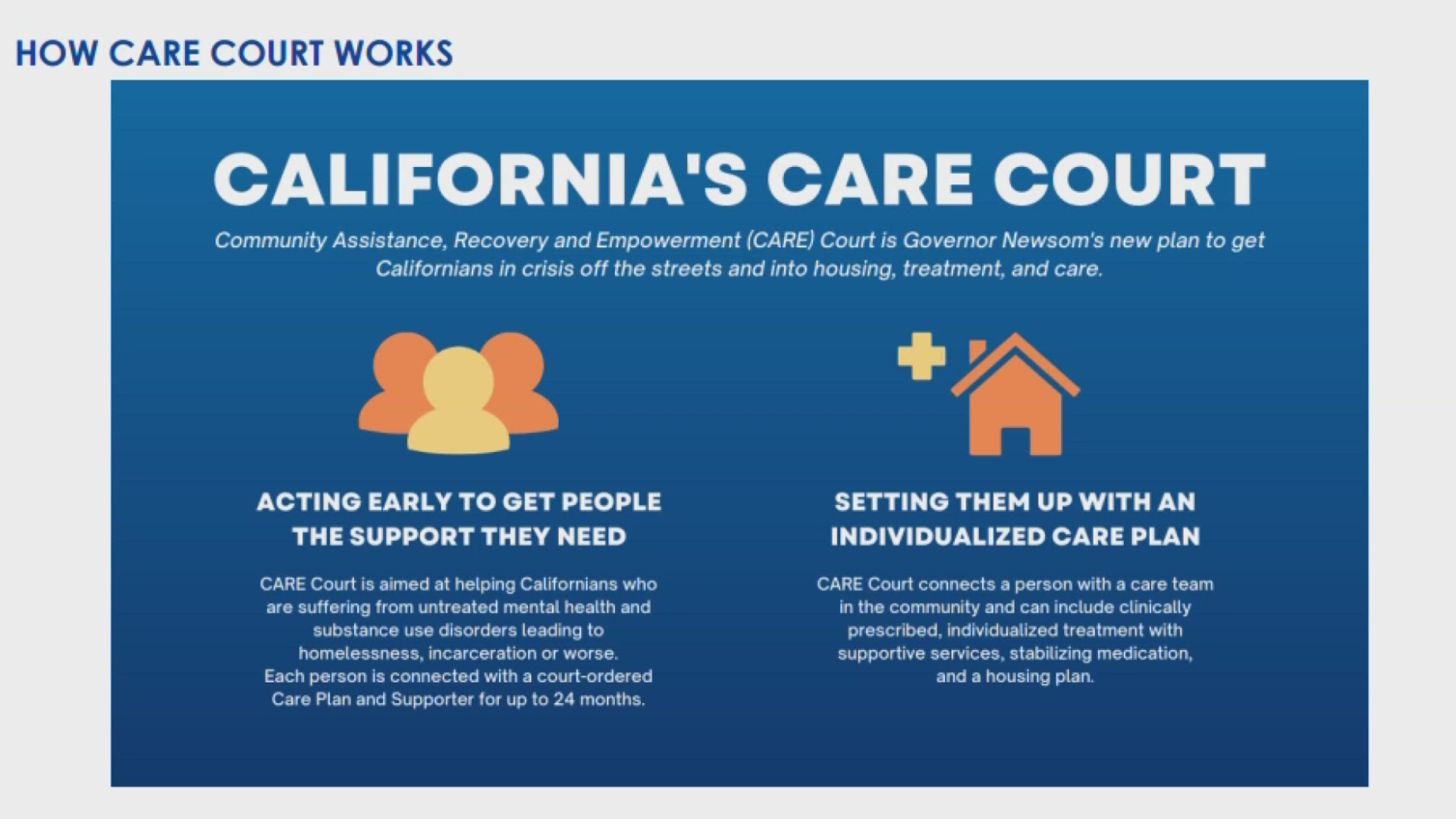SAN DIEGO — The state law, CARE Court, passed last year and goes into effect October 2. CARE Court stands for Community Assistance, Recovery and Empowerment and it aims to give people with mental health and substance use disorders the support and care they need.
It is Governor Gavin Newsom's plan to get Californians in crisis off the streets and into housing, treatment and care. San Diego is one of the first counties to adopt the law that allows people to suggest a loved one receive mental health care.
How it works: a first responder, family member or friend can file a petition on behalf of anyone they feel is suffering from a severe mental illness. Then, a court officer decides if the person meets the eligibility criteria and then the person undergoes a mental health evaluation within two weeks.
The court holds a hearing to decide if the person should meet with a case manager and enroll in a care plan designed to help with their symptoms.
This whole process is voluntary, meaning the person petitioned can decide whether or not they want to participate.
The County of San Diego Health and Human Services Agency sent CBS 8 this statement:
"The CARE Act program creates a process for families, clinicians, first responders, and others to file a petition with the civil court to connect adults to court-ordered voluntary treatment If they criteria and would benefit from the program.
If the Superior Court judge determines that a case should be established, a CARE Plan will be developed with County BHS, in partnership with the petitioned individual and their counsel. The CARE Plan will be submitted to the Superior Court for review and, if accepted, BHS and its network of community-based providers will actively engage the individual for whom a CARE Plan is being established to connect to services.
The Care Act program can involve an order for care in civil court, but this order is not a mandate for care. Engagement remains voluntary, at its core."
Director of Behavioral Health Services for San Diego County, Dr. Luke Bergmann, says the services are restricted to those with schizophrenia and related disorders.
"Schizophrenia is not one of the most common diagnoses, certainly not with behavioral conditions and among people in homelessness. We see higher rates of depression and anxiety," said Bergmann.
According to the National Alliance on Mental Illness, less than 1% of adults in the U.S. have schizophrenia. Depression and anxiety are more common, but CARE Court will not be offered for those diagnoses.
"It's a narrow band of people, it's not going to get the broader scope of needs and homelessness, but that doesn’t mean it won't be useful," said Bergmann.
CARE Court builds on Governor Newsom’s $14 billion multi-year investment to provide new housing and community behavioral services.
"We're hopeful this program will help some people develop care plans that it wouldn’t help otherwise. We are optimistic it will help some people. It may not benefit for the numbers of people whom some I think people in the community anticipate, but we still see this as very useful potentially and we will do everything to optimize its positive effects," said Bergmann.
Watch Related: San Diego on forefront of launching first-in-the-nation Care Court program (Dec 1, 2022)

